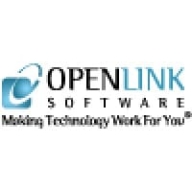

SUSE Linux Enterprise and OpenLink Virtuoso are competing products within the enterprise software market. SUSE Linux Enterprise is favored for its strong operating system capabilities, while OpenLink Virtuoso excels in data management features.
Features: SUSE Linux Enterprise offers stability, security, and support for cloud environments. It provides advanced system management and high availability. OpenLink Virtuoso supports versatile data integration and offers a powerful platform for managing large datasets across various sources.
Ease of Deployment and Customer Service: SUSE Linux Enterprise features seamless cloud integration and system compatibility, with a comprehensive support network. OpenLink Virtuoso supports agile deployment in distributed environments, although it presents a steeper learning curve. SUSE's strength lies in customer service, while OpenLink Virtuoso offers flexibility for complex data scenarios.
Pricing and ROI: SUSE Linux Enterprise is known for competitive pricing and good ROI, attributed to efficient resource management and comprehensive support. OpenLink Virtuoso, potentially higher in upfront cost, delivers strong ROI through its extensive data handling and integration features.

OpenLink Virtuoso is a versatile platform for data integration, delivering robust solutions for storage and querying across diverse environments. Its architecture supports scalable operations, making it suitable for data-driven enterprises.
OpenLink Virtuoso stands out with its ability to unify data from different sources. Its RDF data model and SPARQL support facilitate dynamic data interactions across silos. This platform is engineered for seamless data linkage, providing efficient query processing. Its compatibility with industry standards ensures reliable performance while maintaining flexibility for future expansions.
What are the key features of OpenLink Virtuoso?Industries such as healthcare, finance, and e-commerce benefit from OpenLink Virtuoso's ability to integrate complex datasets. In finance, it enhances risk management by providing comprehensive data views, while in healthcare, it aids in achieving patient-centric interoperability goals.
SUSE Linux Enterprise offers features like YaST for server management, seamless integration with Oracle and SAP, and a robust security setup. Renowned for stability, it efficiently supports workstations, SAP workloads, and cloud migrations across diverse industries.
SUSE Linux Enterprise is known for its lightweight design, high performance, and ease of installation. Its flexible architecture supports extensive documentation and efficient patching. The system uses the BTRFS file system for effective virtualization, and community support is significant. However, challenges include package updates causing conflicts, difficult initial setup and software management, high pricing, and support response times. Improvements in security compliance, cloud integration, hardware compatibility, and documentation are also needed.
What are SUSE Linux Enterprise's important features?
What benefits should users expect from using SUSE Linux Enterprise?
Industries like healthcare and banking use SUSE Linux Enterprise for secure transactions and structured application deployment. It is also a choice for organizations involved in testing, automation, and web development, offering support for SAP HANA integration and facilitating cloud migrations.
We monitor all AWS Marketplace reviews to prevent fraudulent reviews and keep review quality high. We do not post reviews by company employees or direct competitors. We validate each review for authenticity via cross-reference with LinkedIn, and personal follow-up with the reviewer when necessary.